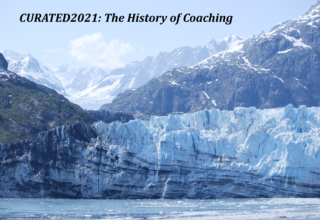
Who are we? Philosophical inquiry into this question is called “ontology.” Under the influence of Newtonian mechanics and logical positivism, understanding phenomena required reductionism, or reducing analysis to constituent parts until the elemental or essential level was reached. Where “being” was concerned in the Western world at the time of l 8’h century demands for liberty, this basic level was assumed to be that of the individual. The emerging ideology of capitalism affirmed the focus on the individual by assuming that one’s own self-interest is the primary route for the promotion of wellbeing. Psychology critic Isaac Prilleltensky (1994) describes this assumption as it appeared in 20′” century psychology as follows: “The self is conceived of as a supreme entity with magnificent powers” (p. l 7). Ultimate explanations, even of social phenomena, were sought at the level of the individual self, with the consequence of excluding from scrutiny social structures or existing power arrangements.
This individualist orientation builds on the Socratic principle of discovering one’s own answers to questions and support self-awareness and the search for self-fulfillment in coaching. Following his experience in Nazi concentration camps, Viktor Frankl (I 984) described how people’s ability to create meaning may lend them strength to withstand adversity. Exploration of the meaning of existence by Frankl and other existential philosophers is a substantial contribution to coaching.
However, philosophers such as Martin Buber (1970) and social sciences of the early 20’h century, such as sociology and anthropology, investigated “who are we?” by approaching social interaction, groups, societies, and cultures not as aggregates of individuals but as exhibiting emergent properties that cannot be fully understood through a lens that sees only the individual self as primary. Anthropologists developed methods that required them to participate in the societies they were studying. Sociologists Peter Berger and Thomas Luckmann (1966) showed how social interaction influences what individuals think of and react to as reality. New Age philosophy, which gained influence during the social upheavals of the I960’s, renewed interest in non-Western and more community-oriented traditions.
Social psychologist Richard Nisbett (2003) investigated different patterns of thinking between Westerners and Asians and described how globalization was allowing the groups to exchange worldviews. Eastern traditions of Buddhism, Hinduism, Taoism, and Confucianism that rest on assumptions of social and universal embeddedness have become more known and accepted in the West, including among coaches. Travel, communications, and commerce have put people around the world in touch with one another, have accelerated access to the resources provided by different perspectives, and have made it more difficult to assume the superiority of one over another. Thus, individualism was brought into question by recognition of the importance of relatedness.
Systems theory (von Bertalanffy,1969) began as an attempt to model relatedness in biology, but has been widely applied to ecology, cybernetics, education, history, philosophy, psychotherapy, psychology, sociology, and neuroscience. Generally, a system is defined as a set of elements and the relationships among those elements (Weinberg, 1975), so it is a direct expression of an emphasis on relatedness. By the end of the 20’h century, lessons from systems theory, along with work in the areas of chaos and complexity were being applied to human beings and human systems (Wheatley, 1992). Each of us as an individual is a complex system embedded in other complex systems – relationships, families, groups, organizations, societies, and the human species.
Download Article 1K Club

















